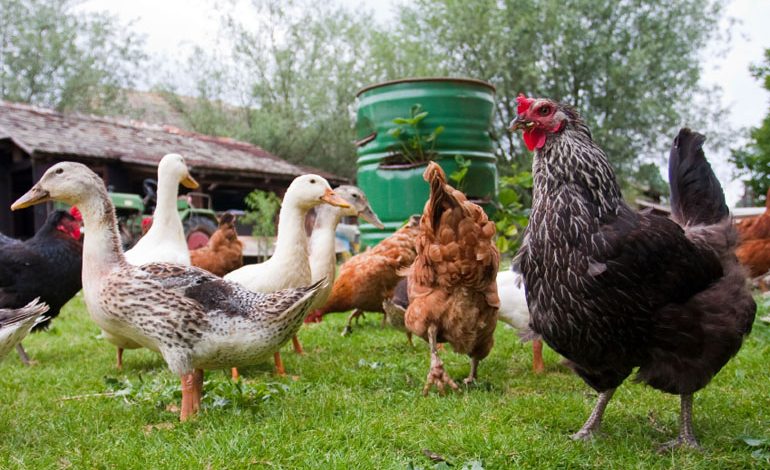Advice is being given to people in County Durham who keep poultry such as chickens and ducks due to concerns over avian flu.
A number of cases of avian influenza have been confirmed within the UK since December 2016, and nationwide restrictions are currently in place.
Some areas of County Durham have been designated as ‘higher risk’, and so Durham County Council is now urging poultry keepers, even those who may just keep a couple of chickens in their garden, to introduce additional measures in an effort to combat the spread of the disease.
The additional measures will become effective from 28 February 2017, and the council’s Community and Animal Health team will be assisting with their enforcement, particularly in the higher risk locations.
The new measures will include:
• Within the higher risk area, all poultry and captive birds, regardless of flock size, must be housed or kept within completely netted outside areas/ranges, pens, cages or aviaries;
• All poultry keepers in England with more than 500 birds must comply with additional biosecurity measures regardless of whether you are inside or outside the higher risk area;
• Outside of the higher risk area, keepers have the option to allow poultry and other captive birds to have managed access to fenced outdoor areas. However, additional biosecurity measures must be put in place and adhered to.
Minimum biosecurity measures, regardless of whether the flock is kept in a higher risk area or not, must also adhered to.
These include:
• Reducing the movement of people, vehicles or equipment to and from areas where poultry are kept;
• Taking all reasonable precautions to avoid the transfer of contamination between premises, including cleansing and disinfection of equipment, vehicles and footwear;
• Keeping domestic ducks and geese separated from other species (for example by keeping them in separate runs or sheds);
• Ensuring feed, water and bedding has not been contaminated by or been in contact with wild birds and in particular gulls and waterfowl;
• Implementing effective vermin control where poultry or captive birds are kept;
• Records must be kept of all vehicles and people that enter the part of a premises where poultry are kept;
• Placing foot dips & boot brush containing a DEFRA-approved general poultry order disinfectant at the entry and exit of all houses and outdoor areas/range where birds are kept.
Joanne Waller, head of Durham County Council’s environment, health and consumer protection service, said: “While the risk of this disease remains high across the country, we would encourage all poultry keepers to practise strict disease prevention measures in line with Defra’s guidance, even if they only have a few birds in their garden or on an allotment.
“These measures are likely to remain in force until at least the end of April.”
An interactive map is now available on the DEFRA website to help keepers identify whether their premises is within a higher risk area: www.gisdiseasemap.defra.gov.uk/intmaps/avian
There are also guidance documents available on DEFRA website, which detail the measures for keepers to follow: www.gov.uk/guidance/avian-influenza-bird-flu
For general advice on Avian Influenza poultry keepers can phone: 03459 335 577.
Poultry keepers are advised to keep a close eye on the health of their flocks and call the Defra helpline on 03000 200 301 if they suspect any cases.








